Pride Month: LGBT Scots on homophobia, trans rights and what still needs to change in Scotland
There may not be a parade this year, but Pride Month is an opportunity to spotlight LGBT+ experiences in Scotland.
So we spoke to a range of young people about their lives and the issues facing their community in 2021.
‘Keeping quiet perpetuates this silence and shame’
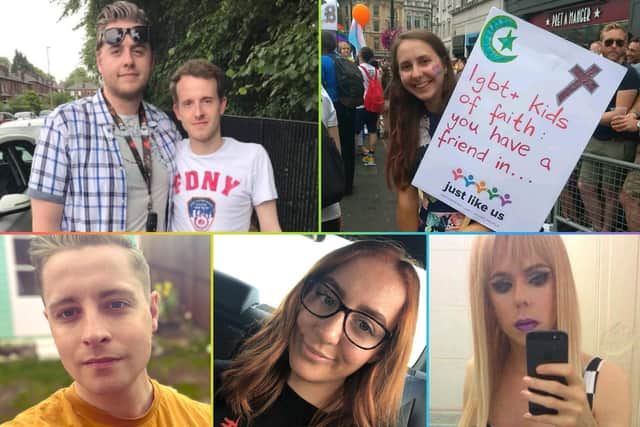

Advertisement
Hide AdAdvertisement
Hide AdHeather McDade is bisexual and a volunteer ambassador for LGBT charity Just Like Us.
The 23-year-old from Highland Perthshire says: “I think the most important thing in Scotland, particularly in rural areas, is for more people to talk positively and openly about being LGBT+.
"Because there’s a culture of silence surrounding it, I could never know growing up that I would be supported, and so went through all my childhood afraid of what people’s reaction would be, and ashamed of who I was."
Heather remembers being “excited and happy” when same-sex marriage was legalised in 2014.
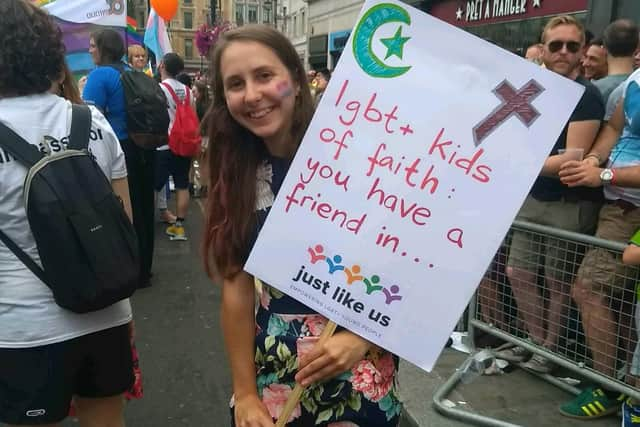

She wanted to put up signs and give out sweets in school to celebrate it, but was told she needed approval and said it was made clear this would not happen.
"I felt ignored, unimportant, and really isolated,” Heather says, "That’s why it’s so important for allies to speak up, and actively support LGBT+ people, as keeping quiet just helps to perpetuate this silence and shame.”
‘It’s still a huge problem in this country, it’s got worse with social media’
Jonathan Litewski, 33, and his partner Lee Riches, 28, have faced homophobia while living in temporary accommodation in Edinburgh.
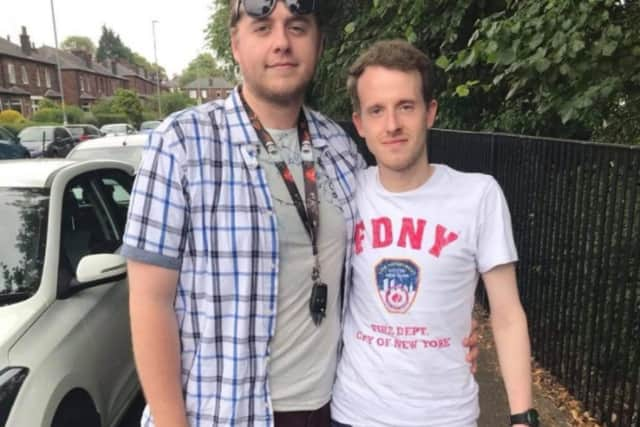

The pair were made homeless when their car – which they both relied on for work as carers – failed its MOT and they had to spend three months’ rent to fix it.
Advertisement
Hide AdAdvertisement
Hide AdThey have been living in emergency housing since January 2020. “The only hot meals we could have were cheese toasties made with tin foil and an iron,” said Jonathan, “We were out in a room with no cooking facilities or washing machine.
"My employer noticed I was losing weight and my clothes were dirty.”
On top of this, they were abused for being gay. “There was abuse from other residents, and one member of staff.
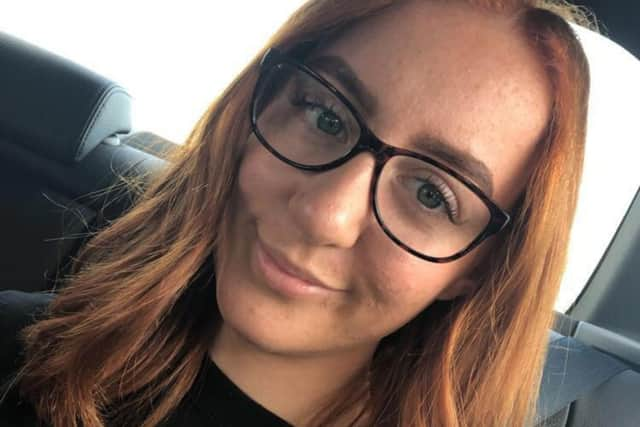

"We don’t show affection in public, we don’t even hold hands because you hear people calling you ‘poofs’.
"It’s still a huge problem in this country, if anything it’s got worse with social media.”
They have since been moved to an apartment until lockdown is over – when they have been told they’ll return to one room in a guest house.
"That was a big kick in the stomach,” said Jonathan, who says he contemplated suicide over the news.
The pair have launched a crowdfunding page to help them get on their feet again.
‘I get asked what happened to make me lesbian’
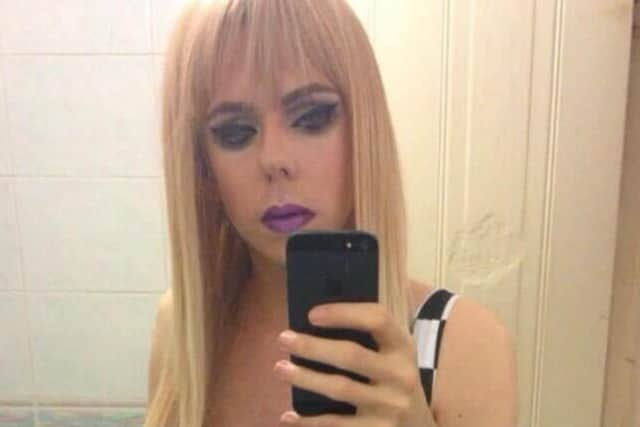

Advertisement
Hide AdAdvertisement
Hide AdAmy Duffy is a student from Ayrshire. She is a lesbian but normally tells people she is ‘gay’ as it feels more normalised.
"There’s nothing wrong with the word but there’s almost this stigma that comes with it,” the 20-year-old says.
When she came out to colleagues, she was asked if she was going to shave her head.
"I get a lot of comments saying I’m lying, I just haven’t met the right man.
"I’m asked ‘what happened to make you a lesbian?’ They seem to think there must be some sort of trauma.”
Amy went to a Catholic school, where LGBT+ learning was absent. “I think when something’s not mentioned, it’s in your mind as a bad thing. I found that really difficult when I was growing up."
Part of a popular group at school, Amy lived a Hannah Montana-style ‘double life’ where she would speak to LGBT friends on her alternative social media accounts.
She thinks LGBT education needs to be taught in schools. “Everything could be sorted early on. Even as far back as primary it should be spoken about.”
Advertisement
Hide AdAdvertisement
Hide AdIt comes after research this week found 79 per cent of young LGBT+ Scots had suicidal thoughts – compared with just 36 per cent of their non-LGBT peers.
Amy also feels the fight over trans rights has become a ‘nasty debate’.
“There’s no way trans women are harming lesbians. That really angers me,” she says, "Trans people are in the same position we were years ago. It was a trans woman who got us our rights.”
Marsha P. Johnson was an LGBT rights activist at the vanguard of the Stonewall uprising in 1969 – which Pride Month marks today.
"We need to be more accepting in Scotland,” says Amy.
‘Transphobia is a massive issue in Scotland’
Talia James is a skincare blogger and influencer from Glasgow.
She says: “Speaking as a trans woman I feel a lot needs to be done to help us. Healthcare for trans people is abysmal, there are upwards of three years for an appointment and that's only for a consultation.
"We need to move away from the gate-keeping of proving you’re trans enough to a doctor to a more informed consent model which could be provided to us by our GPs.”
Talia, 31, says the Gender Recognition Act reform in Scotland was “kicked into the long grass” due to a transphobic backlash.
Advertisement
Hide AdAdvertisement
Hide Ad"Transphobia is a massive issue in Scotland,” she says, “It’s not just from random people but from politicians who attack trans people under the guise of ‘women's rights’. It’s the same bigotry that was used as gay men in the ‘80s in a different wrapper.
“We need a government who is willing to stand up for LGBT+ people and act on the things they say they will do.”
‘Complacency is dangerous’
“People think LGBT rights, that’s done. We’ve got there. It’s not the case,” says Finlay McFarlane, from Ayrshire. "I think there’s a long way to go in Scotland. Complacency is dangerous.”
The 27-year-old won Attitude magazine’s Pride Award in 2018 for his activism as a rape survivor. He says: “True equality means I shouldn’t have to think about holding my partner’s hand in public, that’s still present and real.”
Finlay also thinks the opposition to LGBT rights “feels really hostile” right now, and is worried things will go backwards.
“Charities like Stonewall are under attack,” he says, “It’s through them we have seen every single gain, the fact that it’s under such immense pressure makes me feel quite uncertain about the future in Scotland.”
Stonewall has come under fire recently over its workplace diversity scheme. Finlay is also concerned about negative portrayals of trans people.
“It’s horrifying to my friends who are trans and I don’t think people realise or empathise with how hard their lives can be,” he says.
Advertisement
Hide AdAdvertisement
Hide Ad"We are back to discussing what we previously thought was won rights. We are looking at the Equality Act again – why?”
He says: "We’ll look back on this period and probably be horrified. People like me who have a little bit of power and privilege need to speak up.”
Comments
Want to join the conversation? Please or to comment on this article.